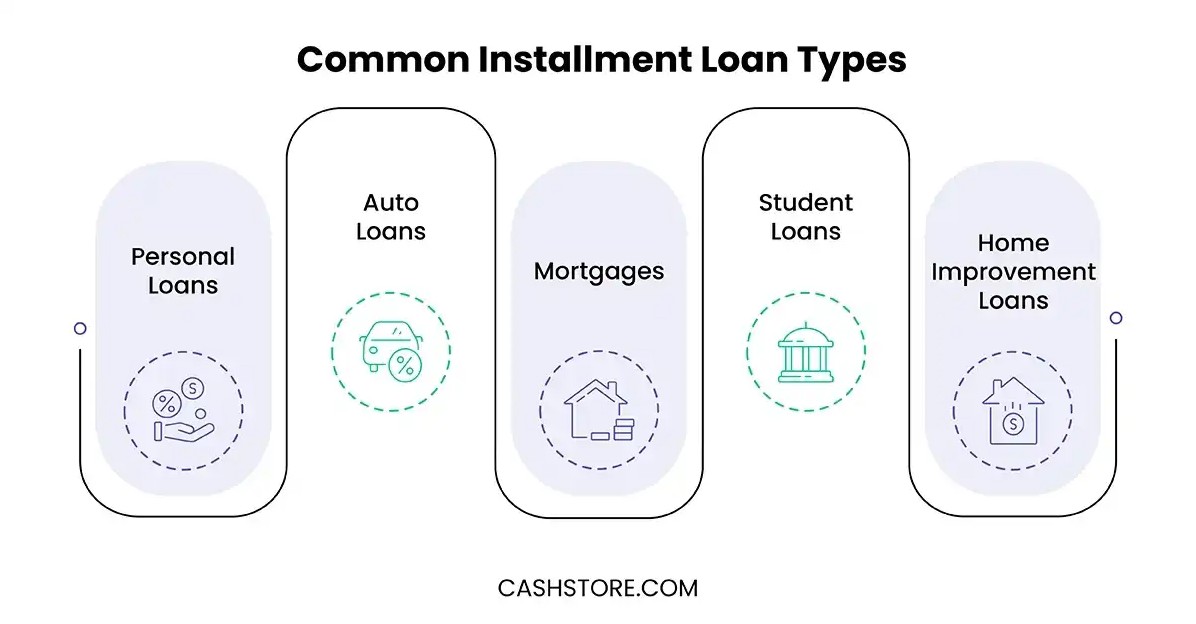How to Take Advantage of a Cash Advance Responsibly
The Ins and Outs of Loans: Browsing Your Financing Options With Self-confidence
Maneuvering the facility landscape of loans requires a clear understanding of various types and necessary terminology. Numerous individuals discover themselves overwhelmed by choices such as personal, auto, and pupil loans, as well as vital principles like rates of interest and APR. A grasp of these fundamentals not just help in examining monetary needs but likewise boosts the loan application experience. There are significant variables and usual challenges that borrowers ought to recognize before proceeding even more.
Understanding Various Sorts Of Loans
Loans offer as essential monetary devices that accommodate various demands and goals. Companies and individuals can select from a number of types of loans, each designed to satisfy particular needs. Personal loans, usually unsecured, supply debtors with funds for numerous individual costs, while vehicle loans make it possible for the purchase of automobiles with secured financing.
Mortgage, or mortgages, assist customers in getting building, normally involving long settlement terms and details rates of interest. Student loans, targeted at funding education, usually come with reduced rates of interest and deferred payment alternatives until after graduation.
For services, business loans provide essential funding for expansion, tools purchases, or operational costs. In addition, payday advance provide quick cash services for immediate demands, albeit with higher rates of interest. Understanding the various kinds of loans enables consumers to make informed decisions that align with their economic objectives and conditions.
Secret Terms and Ideas You Need To Know
When steering loans, understanding vital terms and principles is crucial. Rates of interest play an important duty in identifying the expense of borrowing, while various loan types cater to different monetary demands. Familiarity with these aspects can encourage individuals to make enlightened decisions.
Rates Of Interest Clarified
How do interest rates impact borrowing decisions? Rates of interest stand for the price of borrowing money and are a vital consider financial decision-making. A higher rates of interest enhances the total expense of a loan, making borrowing much less appealing, while lower rates can incentivize consumers to tackle debt. Lenders use rate of interest to mitigate risk, reflecting customers' credit reliability and prevailing economic conditions - Fast Cash. Repaired rate of interest rates remain constant throughout the loan term, using predictability, whereas variable prices can rise and fall, possibly leading to higher repayments in time. Furthermore, understanding the interest rate (APR) is necessary, as it includes not simply rate of interest but also any kind of linked fees, supplying a comprehensive sight of loaning costs
Loan Keys In Overview
Maneuvering the landscape of loan kinds is important for debtors looking for one of the most suitable funding choices. Comprehending different loan kinds helps people make notified decisions. Personal loans are typically unsafe, excellent for settling financial obligation or financing individual projects. Home loans, on the other hand, are safeguarded loans especially for purchasing realty. Car loans serve a comparable objective, financing vehicle purchases with the vehicle as security. Service loans deal with business owners requiring funding for operations or growth. Another choice, student loans, aid in covering academic expenditures, often with positive payment terms. Each loan type offers distinctive terms, rates of interest, and eligibility criteria, making it essential for borrowers to assess their economic requirements and capabilities before committing.
The Loan Application Process Explained
What steps must one require to successfully navigate the loan application procedure? People need to examine their economic demands and determine the type of loan that straightens with those demands. Next off, they must assess their credit scores record to confirm accuracy and identify locations for renovation, as this can affect loan terms.
Following this, consumers must collect necessary paperwork, including evidence of revenue, work history, and financial declarations. When prepared, they can approach lenders to make inquiries about loan products and rate of interest.
After choosing a lending institution, completing the application accurately is essential, as mistakes or omissions can postpone processing.
Last but not least, candidates ought to be all set for possible follow-up requests from the lending institution, such as additional documentation or explanation. By complying with these actions, people can improve their opportunities of a smooth and efficient loan application experience.
Aspects That Influence Your Loan Authorization
When thinking about loan authorization, several vital variables enter into play. Two of the most considerable are the credit report and the debt-to-income proportion, both of which provide loan providers with understanding into the borrower's monetary security. Comprehending these aspects can considerably improve a candidate's chances of protecting the desired financing.
Credit Score Importance
A credit score offers as an important standard in the loan authorization process, affecting loan providers' assumptions of a debtor's financial dependability. Typically ranging from 300 to 850, a greater score shows a background of responsible credit rating usage, consisting of timely repayments and reduced credit usage. Various factors contribute to this score, such as repayment background, size of credit rating, kinds of credit score accounts, and current credit history questions. Lenders use these ratings to analyze risk, determining loan terms, rate of interest, and the possibility of default. A solid credit history not only boosts authorization opportunities yet can additionally lead to much more favorable loan problems. Conversely, a reduced score might cause higher rate of interest or rejection of the loan application completely.
Debt-to-Income Proportion
Several lenders consider the debt-to-income (DTI) proportion a crucial element of the loan authorization process. This financial statistics compares an individual's month-to-month financial obligation repayments to their gross regular monthly income, giving understanding right into their capability to manage additional financial obligation. A reduced DTI ratio indicates a healthier economic scenario, making consumers extra appealing to lenders. Variables affecting the DTI ratio include real estate costs, bank card balances, student loans, and various other persisting expenses. Additionally, adjustments in earnings, such as promotions or work loss, can substantially affect DTI. Lenders commonly like a DTI ratio listed below 43%, although this threshold can vary. Handling and recognizing one's DTI can improve the chances of securing positive loan terms and rates of interest.
Tips for Managing Your Loan Properly

Common Blunders to Prevent When Getting a Loan

In addition, numerous individuals rush to approve the very first loan deal without comparing choices. This can result in missed possibilities for better terms or lower rates. Debtors need to also avoid taking on loans for unnecessary costs, as this can lead to long-term debt issues. Disregarding to evaluate their credit report score can impede their capacity to secure positive loan terms. By understanding these mistakes, customers can make educated decisions and browse the loan process with higher confidence.
Frequently Asked Questions
How Can I Improve My Credit Score Prior To Getting a Loan?
To boost a credit score before getting a loan, one must pay bills in a timely manner, lower superior financial debts, examine credit rating reports for mistakes, and stay clear of opening brand-new debt accounts. Consistent monetary practices yield positive results.
What Should I Do if My Loan Application Is Rejected?

Exist Any Costs Linked With Loan Early Repayment?
Lending prepayment charges might apply, relying on the lender and loan kind. Some loans consist of fines for very early payment, while others do not. It is crucial for customers to review their loan arrangement for particular terms.
Can I Negotiate Loan Terms With My Lending institution?
Yes, borrowers can bargain loan terms with their loan providers. Aspects like credit report, payment history, and market conditions may affect the lending institution's readiness to change website rate of interest, settlement timetables, or costs connected with the loan.
Exactly How Do Interest Prices Influence My Loan Settlements Gradually?
Rate of interest considerably affect loan repayments. Greater rates cause enhanced regular monthly payments and overall interest expenses, whereas lower prices lower these costs, ultimately affecting the customer's overall financial worry throughout the loan's duration.
Lots of people discover themselves bewildered by alternatives such as personal, auto, and trainee loans, as well as vital ideas like rate of interest rates and APR. Passion rates play an important function in establishing the cost of borrowing, while various loan types provide to numerous financial requirements. A greater rate of interest price increases the general expense of a loan, making borrowing less enticing, while reduced rates can incentivize borrowers to take on financial obligation. Dealt with rate of interest rates remain consistent throughout the loan term, offering predictability, whereas variable rates can change, potentially leading to greater settlements over time. Finance early repayment charges may use, depending on the loan provider and loan kind.